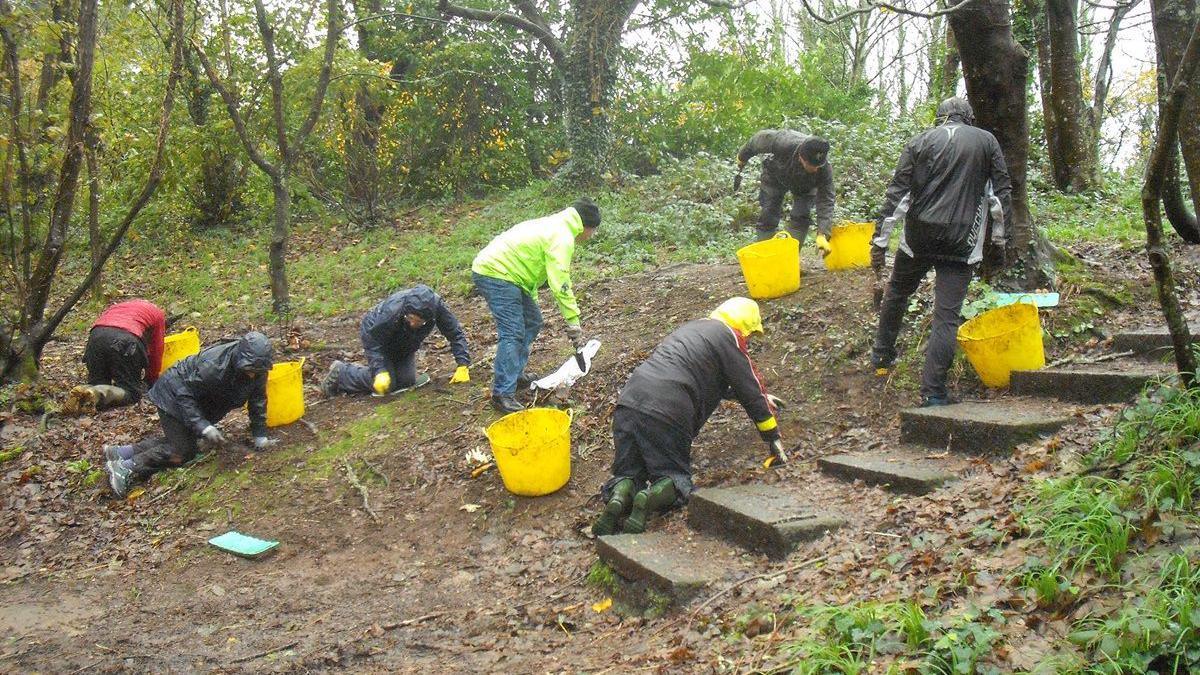'Stinky onion' purge sees bluebell numbers rise
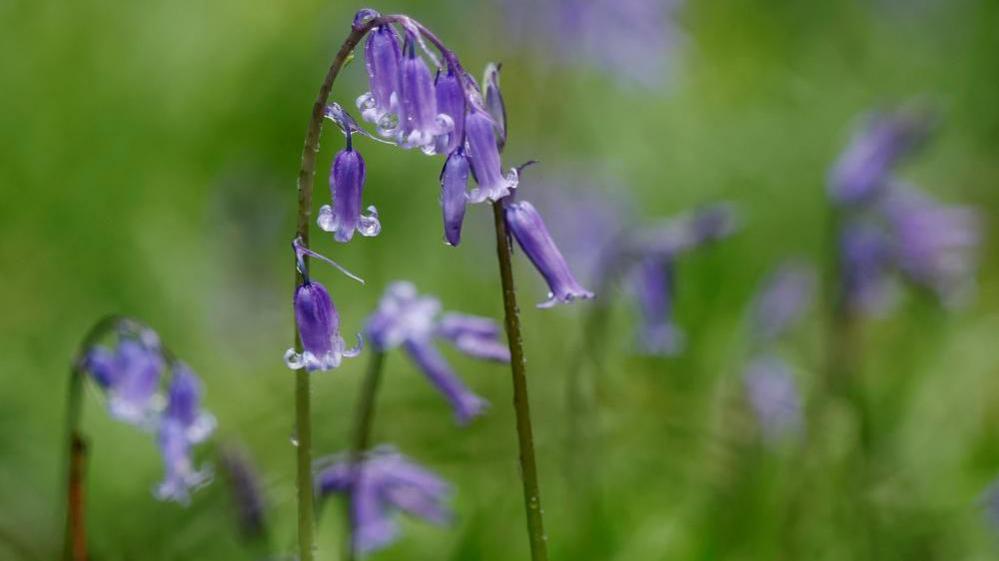
The charity said native bluebells were under threat due to the non-native stinking onion plant
- Published
There has been an increased number of bluebells in Guernsey after a project to tackle an invasive plant which has been threatening them.
The non-native stinking onion plant was introduced to the island in the 1840s and has taken over large areas of Bluebell Wood, Guernsey Conservation Volunteers (GCV) operations director Angela Salmon said.
Stinking onions, or allium triquetrum, "threaten the delicate ecosystem of the woodland by outcompeting native bluebells", she added.
She said the charity had carried out the work at the "cherished natural space" for the past three years and was already seeing an increased number of bluebells.
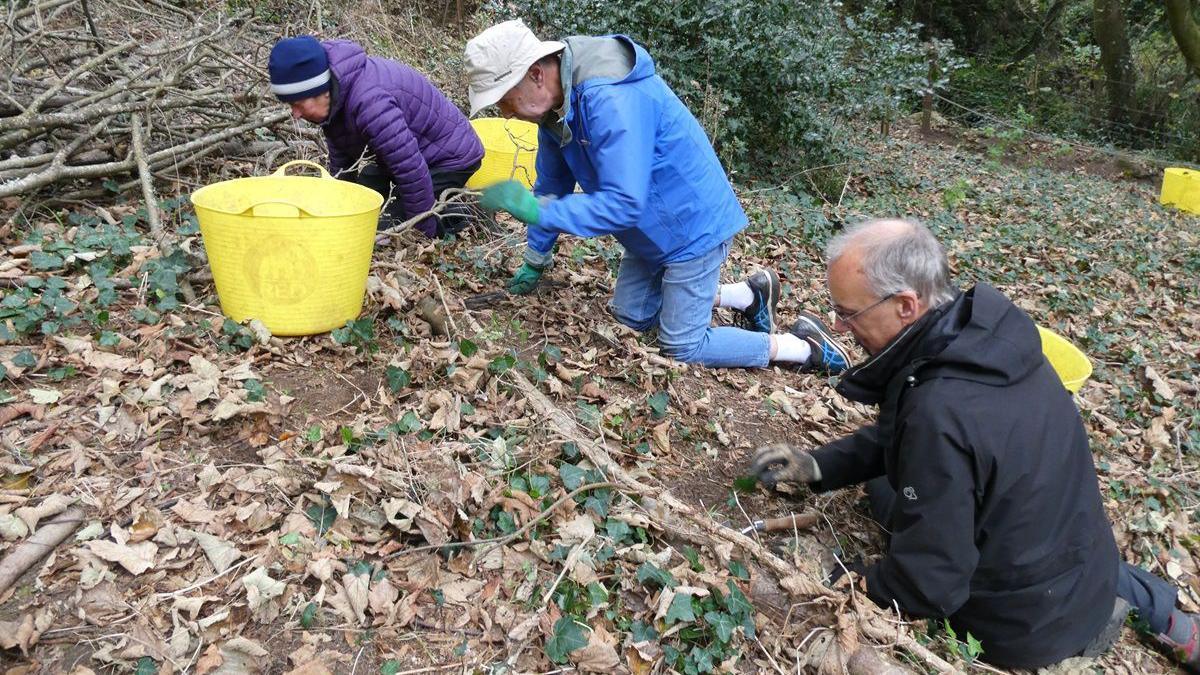
Volunteers have been helping to remove the stinking onion bulbs from Bluebell Wood
The team of volunteers have been removing stinking onion bulbs in the woods.
"If left unchecked, [the stinking onion] would completely dominate the landscape, turning the vibrant bluebell carpet into a sea of white flowers," Ms Salmon added.
She said GCV was committed to continuing the work for at least five years, after which they would assess the long-term impact, but they could already see their efforts were "making a real difference".
More than 400,000 bulbs had already been removed through the project, which runs throughout October and November.
Ms Salmon said the results of the removal efforts had been encouraging, with the number of bluebell stems with seed pods in a monitored trial patch increasing from 62 in 2023 to more than 260 earlier this year.
"This growth signals a promising recovery for the native flora although bluebells are slow to mature and flower with each seed taking five to seven years before flowering for the first time," she added.
The charity has appealed for more volunteers to attend any of the nine sessions at Bluebell Wood taking place through to the end of November.
These involve about 15 volunteers clearing a small patch over a period of two hours before the bulbs are taken off site, the charity said.
Follow BBC Guernsey on X, external and Facebook, external and Instagram, external. Send your story ideas to channel.islands@bbc.co.uk, external.
- Published15 August
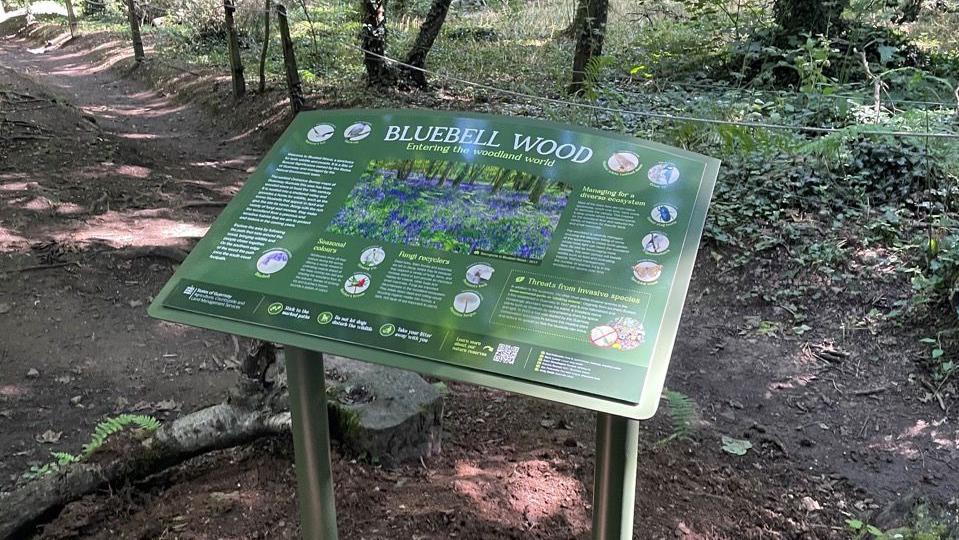
- Published16 November 2024
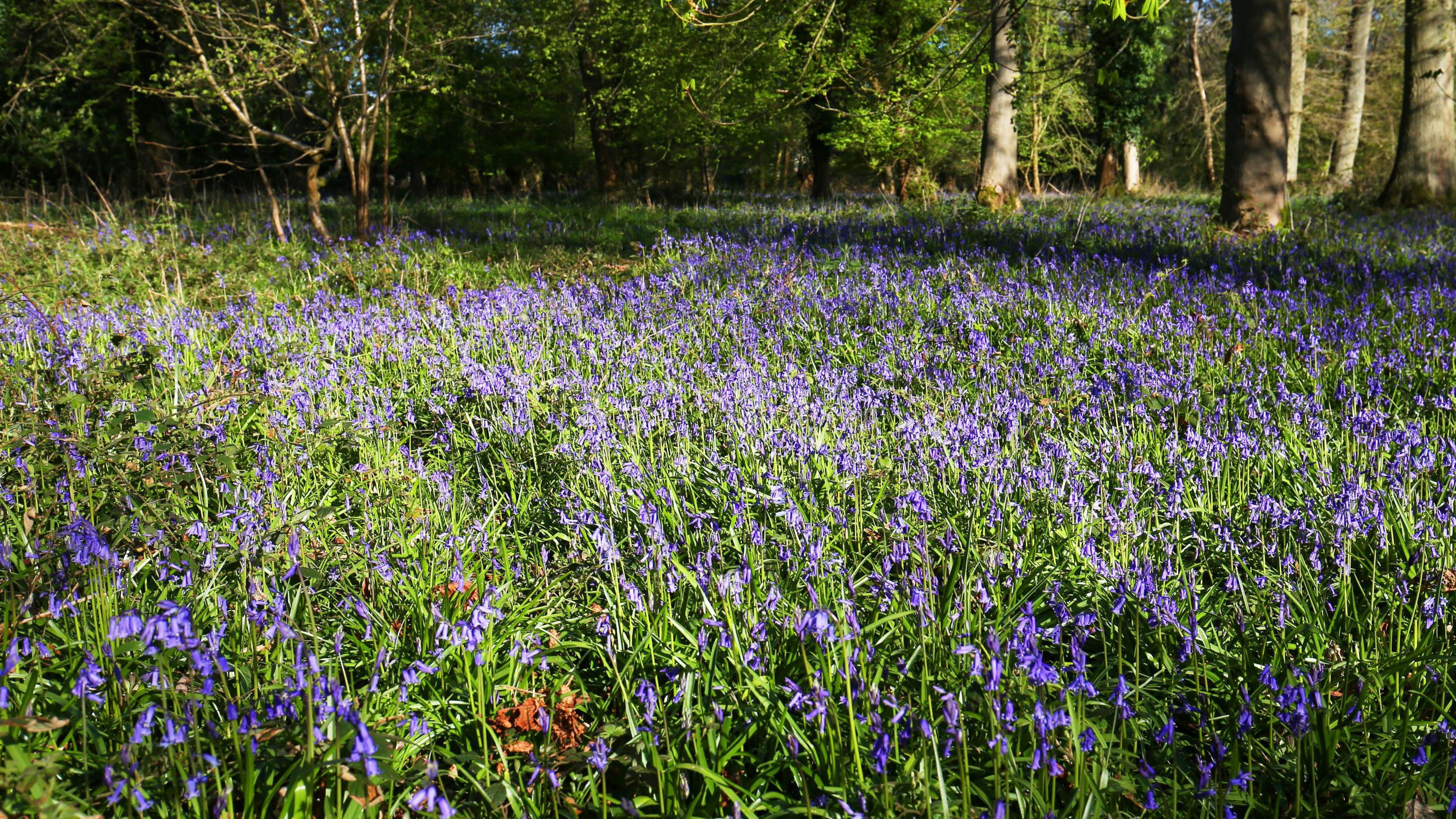
- Published17 March 2023
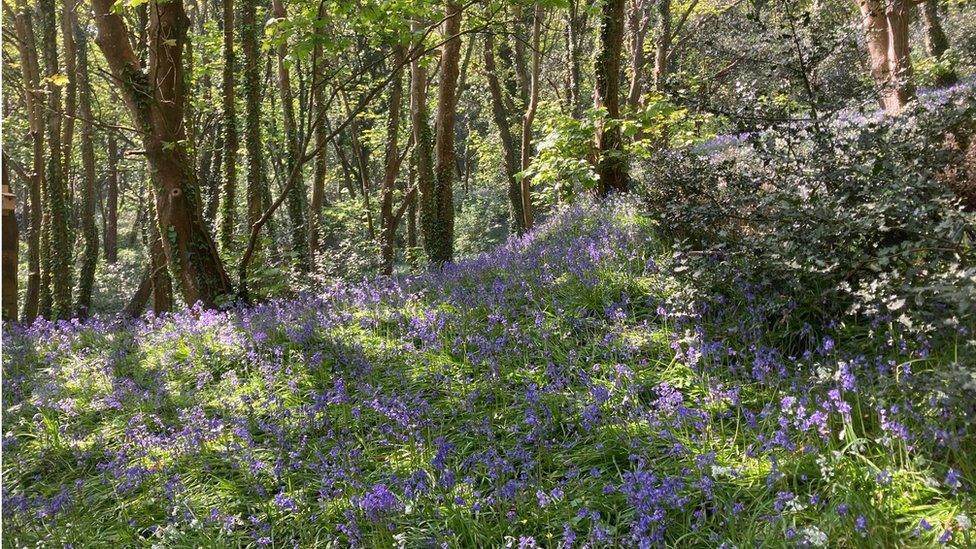
- Published18 January
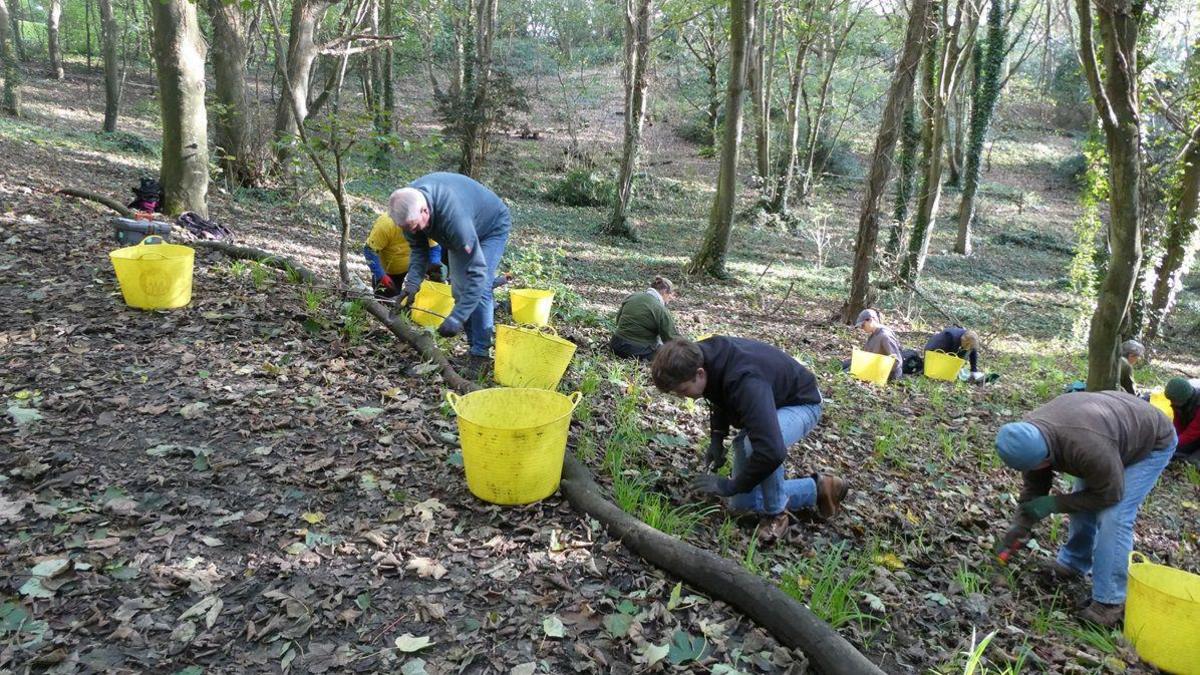
- Published29 March 2024
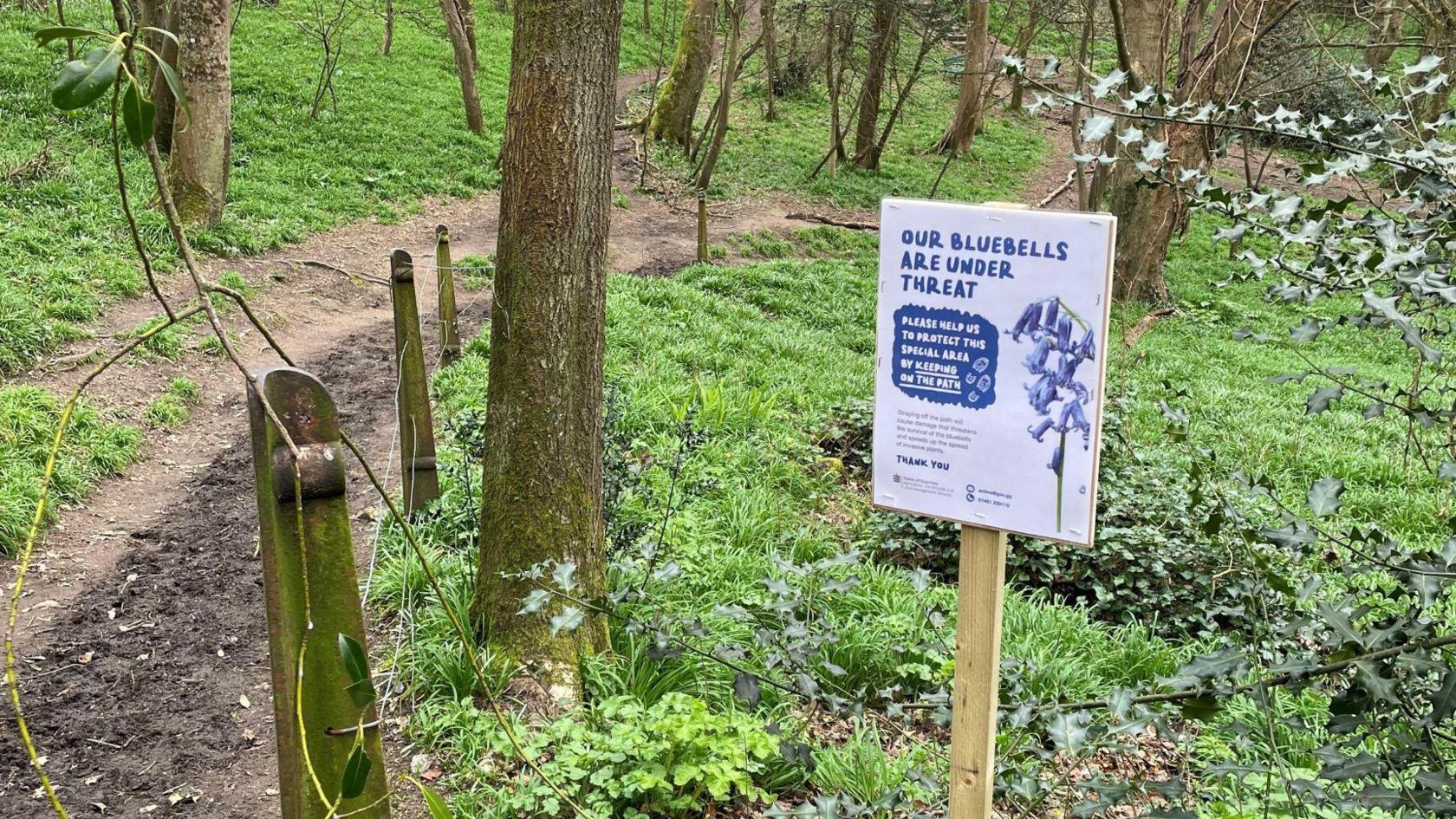
- Published22 November 2023
